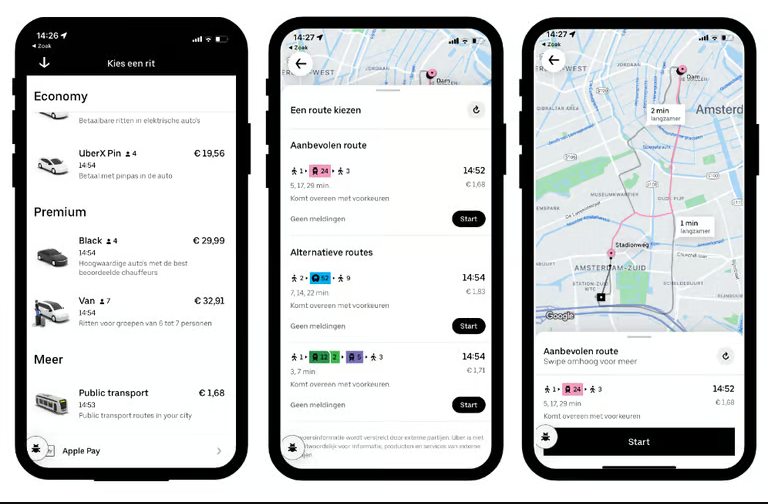Uber promotes the use of electric and hybrid vehicles in its fleet. Drivers have the option to use environmentally friendly vehicles, further reducing the carbon footprint of ridesharing trips. Uber reduces the number of cars on the road, leading to less traffic congestion and lower emissions per passenger.
As people’s awareness of their impact on the environment has grown, the idea of “green travel” has acquired a lot of popularity in recent years. The Uber app is a major force behind the promotion of environmentally friendly transportation.
In case you are interested in knowing how to create app like Uber, in this blog you will learn the ways in which Uber app promotes environmental friendly transportation and green travel.
Making decisions when traveling that reduce adverse effects on the environment is known as “green travel.” This includes walking, biking, carpooling, public transportation, and ridesharing services like Uber, all of which are essential for lowering carbon emissions.
Uber’s Role in Sustainable Transportation:
Carpooling and Shared Rides: Uber provides alternatives that let several people use a single vehicle for carpooling and shared rides.
Promoting Integration with Public Transportation: Uber has integrated with public transportation in numerous places, facilitating the combination of ridesharing and public transportation for environmentally friendly travel choices.
Encouraging Walking and Biking: Uber offers services like Uber Eats for food delivery and Uber Bike for bike rentals in select locations to encourage the use of alternative forms of transportation like walking and biking.
Effective Planning and Routing: The Uber app makes use of sophisticated algorithms to cut down on idle time and optimize routes, which results in more fuel-efficient travels.
Ridesharing Pooling: By maximizing vehicle occupancy and lowering costs and environmental effect, Uber’s Pool feature enables travelers traveling in the same direction to share a trip.
Low Carbon emission: Uber’s lower carbon emissions have positive effects on the environment. Uber contributes to the reduction of transportation-related carbon emissions by encouraging carpooling, electric vehicles, and effective routing.
Less Traffic Congestion: Congestion is lessened when people share rides and travel in groups. This not only saves commuters’ time but also lowers fuel costs and emissions from idle cars.
Promotes Sustainable Mobility: By encouraging consumers to think about eco-friendly transportation options, Uber’s activities support a shift towards sustainable mobility solutions.
Uber Travellers’ Greener Tips
Opt for Shared Rides: When it’s feasible, use carpooling or shared rides to lessen the number of cars on the road.
Choose Eco-Friendly Vehicles: To reduce carbon emissions on your Uber journeys, choose for electric or hybrid vehicles where available.
Use in combination with Public Transit: To plan a more environmentally friendly trip, combine Uber with public transportation.
To encourage eco-friendly practices, consider using Uber services such as Uber Eats or Uber Bike for food delivery and walking/biking excursions.
Key Takeaways
-
Uber’s ride-sharing business model lessens the need for private automobiles, which lowers emissions and improves traffic flow.
-
Uber Pool and shared ride alternatives reduce the number of cars on the road, which lowers the number of emissions produced per mile of passengers.
-
Uber Green encourages drivers to choose eco-friendly cars, which helps reduce carbon emissions.
-
Collaborating with public transport networks promotes effective utilization of public transport, thereby lowering the total amount of emissions.
-
Sharing bikes and scooters offers eco-friendly options for quick travels, hence decreasing dependence on automobiles.
-
Uber Commute promotes carpooling, which reduces the number of cars on the road during rush hour and enhances traffic flow.
In Conclusion
By providing choices like carpooling, shared trips, electric automobiles, and integrated public transit services, the Uber app significantly contributes to the promotion of sustainable mobility practices. Users can take part in efforts to reduce carbon emissions and promote more environmentally friendly travel choices while still taking advantage of ridesharing services.


